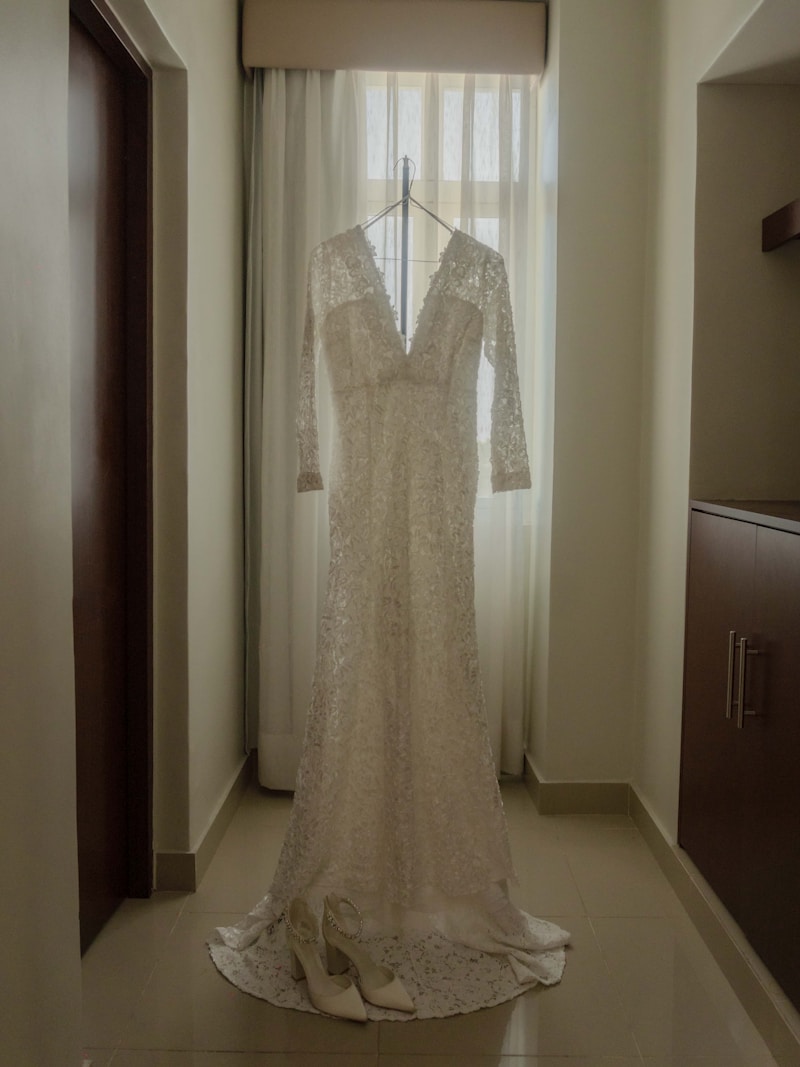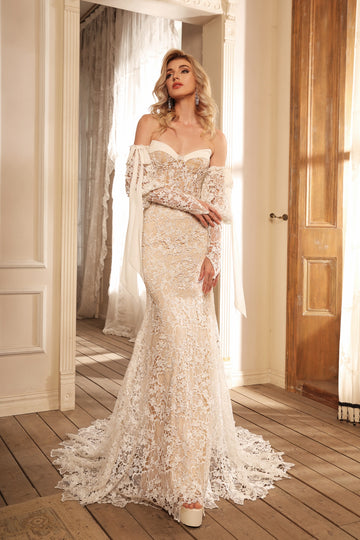Exploring Personalization and Sustainability in Bridal Fashion
Exploring Personalization and Sustainability in Bridal Fashion
The bridal fashion industry has undergone significant transformations over the last decade, largely driven by the increasing demand for personalization and sustainability. Modern brides are not only looking for unique, statement-making gowns but are also mindful of the environmental impacts their choices may have. This article delves into how personalization and sustainability are shaping the future of bridal fashion, the benefits of making conscious choices, and what brides-to-be should consider when planning their wedding attire.
The Shift Towards Personalization in Bridal Fashion
Personalization in bridal fashion reflects a broader trend where couples want their weddings to tell a story about their unique love journey. Gone are the days of one-size-fits-all wedding dresses. Instead, brides are now seeking custom designs that reflect their personalities and preferences. This shift is influenced by a variety of factors:
- Individuality: Brides want their gowns to express their personal style and story.
- Signature Elements: Incorporating unique fabrics and styles, such as bohemian or vintage elements.
- Collaborative Design: Working closely with designers to create custom pieces.
Why Brides are Embracing Personalized Wedding Attire
Personalized bridal fashion allows for a unique expression of self and can significantly enhance the overall wedding experience. Here are some reasons why brides are leaning towards personalized options:
| Benefits | Description |
| Unique Identity | Every bride can showcase her unique style, making her wedding one-of-a-kind. |
| Emotional Connection | A personalized gown often carries sentimental value, creating lasting memories. |
| Lasting Quality | Custom-made gowns are often of higher quality, crafted with attention to detail. |
| Supports Local Artisans | Buying from local designers helps stimulate the local economy and sustain craftsmanship. |
Examples of Personalization in Bridal Fashion
Brides are exploring various ways to personalize their wedding attire:
- Custom Embroidery: Adding initials or significant dates to the gown.
- Unique Fabrics: Choosing sustainable fabrics like organic cotton, linen, or recycled materials.
- Modular Designs: Opting for gowns that can be altered or styled in different ways throughout the day.

The Rise of Sustainability in Bridal Fashion
As awareness of environmental issues grows, the bridal fashion industry is responding with sustainable practices that prioritize eco-friendliness. Here are several trends that exemplify this shift:
Eco-Friendly Fabrics
Many designers are now using sustainable materials in their collections. For instance:
- Bamboo Fabric: A sustainable and biodegradable option.
- Organic Cotton: Free from synthetic pesticides and fertilizers.
- Recycled Materials: Utilizing fabrics made from recycled bottles or other textiles.
Second-Hand and Vintage Options
The idea of second-hand or vintage wedding dresses is gaining popularity among environmentally conscious brides. Not only does this option reduce waste, but it also often comes with a lower price tag, making it accessible to a wider audience. Consider these points:
- Unique Styles: Vintage dresses bring a sense of history and often standout designs.
- Cost-Effective: Usually less expensive than new gowns, allowing brides to invest in other wedding elements.
- Environmental Impact: Buying second-hand reduces the carbon footprint associated with new manufacturing.
Challenges in Personalization and Sustainability
While the trends towards personalization and sustainability are promising, there are challenges that brides and designers may face:
Cost of Customization
Custom bridal gowns often come with a higher price tag due to the materials, labor, and design process involved. Brides should budget accordingly and consider local artisans who may offer more competitive prices.
Availability of Sustainable Materials
The sustainable fabric market is still developing, and availability can be inconsistent. Brides should research suppliers carefully and consider timelines for ordering custom materials.
Educating Yourself as a Bride
Brides-to-be should educate themselves on the brands they are considering, checking if they uphold sustainable practices throughout their supply chain. Here are some suggestions:
- Research the Brand: Look into the brand's manufacturing processes and materials used.
- Ask Questions: Don't hesitate to inquire about how the dress impacts the environment.
- Consider the Chain: Acknowledge the entire lifecycle of the dress, from production to disposal.
Conclusion
As the wedding industry evolves, personalization and sustainability remain central themes that modern brides are increasingly prioritizing. Choosing a personalized wedding dress that aligns with sustainable practices not only enhances the overall wedding experience but also contributes positively to the environment. Brides should remember that their choices matter, and opting for unique designs and sustainable materials can leave a lasting impact. When planning your wedding attire, consider these aspects closely to ensure that your gown reflects your values while remaining a beautiful symbol of your love. Embrace creativity, research your options, and engage with artisans who share your vision for a greener, more personalized bridal fashion journey.
